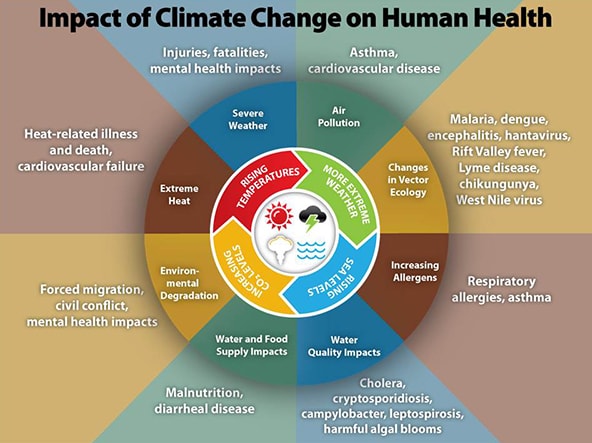In this piece, we would be considering our current position as regards climate change and the way forward. Climate change is a change in the weather patterns brought about by a continuous unstable varying in the factors that affect climate. Currently, the world’s climate is experiencing some changes and this can be tied to a condition known as global warming.
The principal cause of climate change is human activities; both domestic and industrial. This includes deforestation, and burning up of fossil fuels; these two lead to emission of greenhouse gases such as carbon thereby increasing the amount of carbon in the atmosphere. This becomes a problem because these gases act as a “cover layer” for earth, so as the gases increase in the atmosphere, the “cover layer” becomes denser leading to global rise in temperature.
Globally there have been predictions of future effects of climate change. One very threatening effect is the risks climate change presents to agriculture especially in sub-Saharan Africa. This is because, if the current situation of climate persists, there will be increase in the overall temperature globally leading to dryness, drought, lack of rainfall, melting glaciers resulting in rise of sea-levels. These consequences have adverse ripple effects on the general health of people and quality of natural resources such as food scarcity, air pollution.
Currently, there are significant evidences of these effects globally and if immediate action is not taken and these effects continue to intensify, in the near future, it would be discomforting and almost unbearable for inhabitants of planet earth. There is however hope in sight as solutions to climate change have been identified. One of the solutions is to discourage deforestation (as green life: plants help absorb carbon from the atmosphere face of all of these changes) and burning of fossil fuels. This is to bring about a balance in the amount of carbon in the atmosphere. This can be done by enforcing policies against human activities that give rise to carbon emissions. This is where the government comes in.
It was in this light that the 21st Climate Conference of Parties (COP21) was held in Paris from 30th November to 11th December. The aim of this conference was to achieve a legally binding and partly voluntary agreement across the participating nations to limit global warming to about 2C. There were about 195 countries in attendance and the conference lasted for about two weeks. The United States and China have been identified to be the biggest emitters of carbon, they were both present at the conference and there was a unanimous agreement to cut down carbon emissions in their activities; both domestic and industrial; this is a great opportunity to channel all our efforts as one against climate change.
In the words of Nick Mabey, the chief executive of climate diplomacy organization E3G, “Paris means governments will go further and further to tackle climate change than ever before.” I agree with him, and a lot of comments after the event tailored towards this fact: That though COP21 is a very laudable achievement, it is not going to be automatic in producing the desired results, hence there is need for commitment on the side of the government and also individual parties. One of such commitments would require them standing by their promise to review progress every five years, another would be to finance issues surrounding climate change in developing countries with a sum of $100 billion annually.
Asides the COP21 pact, another very key solution is in getting individuals involved in this fight. A lot of people especially in developing nations are still unaware of the struggle against climate change and as long as they remain unaware, they may not check their activities, such that as we fight climate change from one end, they fuel it from the other end majorly by their domestic activities. This is very dangerous because just as predictions state, the developing nations will be the most adversely affected. It is in this vein that we call on individuals, communities, small groups to begin the campaign against climate change because the fate of our planet in the next 50 to 100 years is in our hands.
For those who already know about this struggle and are working to reduce climate change, this is coming as an encouragement and also as a reminder so that you do not relent on your efforts. Hopefully, in the next couple of decades, we would be able to tell a different story as concerning the state of our planet.
Written by: Paul Ozioma

No comments:
Post a Comment